- Home
- Penelope Lively
Cleopatra's Sister Page 6
Cleopatra's Sister Read online
Page 6
The first century cannot have been an easy ride, for most. A statement which is loaded with the judgemental absurdities of history. Those in question knew neither that it was the first century or that popular prospects might improve. If Christians occasionally surfaced in Callimbia, as they undoubtedly would have done, their concerns would have been those of any sectarian eccentric – ceremonial niceties, the maintenance of privacy – rather than the significance of the calendar. And it would have taken a genius or a clairvoyant to predict democracy, antibiotics and sanitation. Now is now, for all of us, and ever has been. Few are interested in the conditions of last month, or last century, let alone the treats we shall never experience.
The first century gave way to the second, the third, the fourth. Time was slowing up, if only because of its ever-expanding freight of information. Those aeons of creeping and crawling, thrashing and grunting, when nothing happens except evolution, went whipping by. It was a different matter now that there was the testimony of language. Papyrus, parchment, tablets of stone. What was recorded and claimed and refuted and invented. And it would get worse. It would get to a point when time could barely creep ahead at all for the weight of its cargo of information, and history would have to become an industry rather than an agreeable hobby for the leisured and the curious.
The shores of the Mediterranean were getting complicated. Greek and Roman. Persian, Armenian, Byzantine, Arab. Copt and Muslim. People had to know what they were, stand up and be counted. Or assume an expedient flexibility. For definition is in the eye of the beholder. I am a Greek; you are a Roman; he is a barbarian. One man’s Christian is another man’s infidel. And Callimbians would have had to be as quick on their feet as anyone else, anywhere else. The smart citizen kept a shrewd eye on the prevailing ideological climate, quite apart from remaining abreast of current events. Unless you were perversely attached to any particular set of deities, it would have been wise to be pragmatic and flexible where religious belief was concerned. A pity to be seen as intransigent. Equally, it would not have done to become sentimentally fixated upon any particular regime. Much better to be sensibly conscious of the inevitability of change. You could do a lot better and live a lot longer if not too unswervingly committed to your culture or your faith or your ruler.
So long as you had the choice. And the capacity to make choices tends to diminish with social status. The first-class passengers get a chance to take to the boats; if you’re travelling steerage you go down with the ship. There stands today, in downtown Marsopolis, an assemblage of ruined walls and columns, and a concourse of worn paving, all that is left of the Greco-Roman complex which is supposed to have been Berenice’s palace, and which survived in one form and another for a couple of centuries after her reign. The view from there (a delightful one – a sweep of sea, a golden curve of beach) would have been very different from that seen by an occupant of the slave market, another prominent and valued feature of early Marsopolis.
It all boils down to language, in the end. It depends how you see things, and what you care to call them. Callimbia was now a part of mainstream Mediterranean history and accordingly was set for a thousand years of historical negotiation, and all that goes with that. Its inhabitants would have to grit their teeth and be prepared to accept their share of sacking, ravaging, pillaging and looting, with some rape and enslavement thrown in for good measure. But this of course, is the judgemental language of history and is anyway quite disgracefully biased in favour of the Callimbians. Those who visited them to make these necessary adjustments to the status quo saw what they were doing quite differently. They were simply getting on with the normal day-to-day business of an efficiently conducted campaign and – depending on the appropriate terminology in Greek, Latin, Arabic, Persian – requisitioning enemy property, carrying out prophylactic clearance operations, billeting refugees and resettling displaced persons.
For, in any case, what was Callimbia? A concept, merely. The Callimbian border today plunges straight as a die from the coast into the desert, marking out a neat geometrical tract on the map. Back then during the centuries of negotiation, Callimbia was a strategically placed harbour, a fertile plain, a conjunction of trade routes, a well-appointed city and a population who might come in handy as employees, mercenaries or allies. To a Callimbian it was, quite simply, home: the heart of things, beyond which lay an unimaginable wilderness, out of which roared, periodically, cohorts of strangers whose speech was incomprehensible and whose arrival invariably meant trouble. Thus is born patriotism. Along with insularity, xenophobia, racism and much else.
But for most Callimbians, much of the time, all this was peripheral. Life was a matter of personal negotiation; history could take care of itself. The average Callimbian sweated about love, work and survival, never mind the political narrative. And the sun shone and the crops grew and time passed, unregarded.
Travellers come, and go. In the tenth century the place was visited by the redoubtable Abū ’l-Qāsim Muhammad al-Nusaybī, known as Ibn Hawqal, whose somewhat laconic account strikes a familiar note. A touch pedestrian in style, he reports like any bread-and-butter travel writer – he gives useful guidance on local conditions, sightseeing and shopping facilities:
From Egypt to the kingdom of the Callimbians is a distance of thirty merhileh. There are pleasant cornfields, orchards, and a prevailing breeze from the ocean. To the south of this place is sand, and these deserts may only be crossed in winter. The city of Marsopolis has a most ample harbour. It is a well-inhabited place, remarkable for its white slaves from the quarter of Andalus, which include damsels of great value such as are sold for 1,000 dinars and more. There are black slaves also, of high quality, and coral and ambergris and peacocks and spotted skins and camels, mules and other merchandise. There is a very great mosque here, which was built in ancient times as a place of worship for the Greeks and passed later to the Jews and to the Christians who made use of it also for religious ceremonies, until at last it came into the hands of the True Believers. It is furnished now with pavements of marble, while the pillars are ornamented with gold and with precious stones.
7
Lucy
By the time Lucy was fifteen she had seen that there was no need for her to spend her life as her mother had done. She did not lust after material prosperity – clothes, cars, posh houses – it was just that she knew with absolute clarity that no way was she going to settle for acquiescence, compliance and making the best of things. And it is a question of knowledge, she perceived. If you know what there is to know; if you know how to learn. And Lucy was burning to learn. She wanted to know things because she saw that the things were interesting in themselves, but she wanted another kind of knowledge also – the knowledge that makes people mobile, that gives them the power to negotiate. She intended to correct the balance. She had not the slightest desire to be the officials and the mandarins who had harassed Maureen over the years, but she wanted to be in a position to point a finger at them. She thought she might be a politician, maybe. And, like any protective child, she would one day buy her mother a little cottage in the country.
Lucy negotiated the obstacle course of university entrance for herself and for her brother. Her own arrangements were not too daunting; it was simply a question of getting good enough A levels, mastering the complexities of the application system, and then performing adequately at an interview. Which last, in her case, was almost a foregone conclusion, though she did not know it, for Lucy was the kind of girl who brings tears of gratitude to the eyes of jaded academics. Keith was more of a problem. He panicked at the thought of exams and interviews, and had to be hauled by Lucy to the right place at the right time. Eventually her determination, and his own efforts, got him into North London Polytechnic.
Susie was another matter. Lucy had to wade in and find a way for her to be transferred to a different school at which she might stand a better chance of overcoming a fatal inclination to lethargy and get herself some O levels.
‘She’
s like me,’ said Maureen fondly. ‘She’s dreamy. It’s not that she’s stupid, she just has a job putting her mind to things. She’s not so on the ball as you and Keith. I think she should be a ballet dancer. She’s always had that pretty way of standing, and you wouldn’t need any O levels for that, would you?’
Lucy pointed out that Susie’s lethargy was physical as well as mental and that ballet dancing is strenuous, exhausting and requires years of application. She scolded her mother for conniving at Susie’s apparent absence of ambition, and prodded her sister into a school with a more vigorous climate at which she duly achieved a respectable clutch of exam passes and from which she progressed to a technical college to do a course in catering.
Lucy, by this time, was about to leave York University with a degree in Politics and Economics. She had prospered there, from the moment she discovered with surprise that men and women twice her age were prepared to listen with apparent interest to what she had to say, that what she had to say was evidently quite as promising as what anyone else had to say, and that a ferocious taste for argument was an asset and not a serious defect of character. The three years seemed in retrospect to have passed as a single moment, a period of eternal present that was both interminable and crudely brief. At the time, it had gone on and on. And then suddenly it was over, and she found herself ejected into the same raw and real world from which she had slid when she was eighteen. Of course, that world had always been there, and she had returned to it with each vacation, but feeling as though she were on loan, like a sleeper who wakes briefly, poised to plunge back where she belongs. Now she was twenty-one, no longer in transit, and once more a part of that uncompromising reality.
Except that it was a transformed reality. She returned to the same world, but she returned a different person. What she had learned in those three years had confirmed everything that she had suspected as the beady-eyed onlooker of her mother’s travails: there are codes, passwords and first-class tickets. Clearly, she was not equipped with a first-class ticket, nor ever would be, but she now knew the codes and passwords. She had the knowledge, like a London taxi driver, and it was up to her to put it to good use. She knew now how the whole infernal system worked.
She no longer wanted to be a politician. The books that she had read, the arguments that she had had, along with some energetic involvement with student politics and three years’ close reading of newspapers, had induced a certain cynicism. It would be another matter if you lived at a time or in a place where a call to the barricades was an inevitable summons, where the oppositions and the issues were so stark that no right-minded and red-blooded person could do otherwise than sign up to fight. But the sober and prosaic climate of a politically stable society enjoying reasonable prosperity is another matter. Lucy saw plenty that was wrong – yes, indeed – but knew now that her interests and her abilities lay in another direction.
She would be a journalist. And as soon as she said it she saw the ambiguities and the contradictions.
‘Write for the newspapers!’ cried Maureen in dismay.
‘Not that sort of newspaper, Mum. There’s other sorts of newspapers.’
She knew exactly what was distressing her mother. Maureen did not read papers, any more than she exercised her vote. For her, a newspaper was someone else’s copy of the Sun or the Mirror in which you wrapped the rubbish and maybe read the more salacious items as you did so, or the Haringey Gazette which dropped free through the letterbox and was useful because of the small ads. She was envisaging Lucy concocting headlines about sex maniacs or alternatively gathering information about local play-groups and jumble sales.
‘After all the hard work you’ve done! I thought you’d be getting a nice office job, that sort of thing.’
‘You don’t understand, Mum. Not newspapers like you’re thinking of.’
‘Magazines,’ said Maureen, brightening. ‘Now that would be nice. One of the glossies. Fashion and that.’ A doubt struck her. ‘But you’ve never been what you might call dressy. Wouldn’t you have to smarten yourself up?’
Lucy sighed. She brought Maureen a copy of the Guardian and Maureen sat dutifully reading for an entire morning. She looked at Lucy in perplexity and a kind of wonder, perceiving, dimly, the codes and the passwords. ‘Could you really write stuff like that, love?’
‘I don’t know,’ said Lucy. ‘But I’m damn well going to have a go.’
It was not that Guardian style was the summit of her ambitions – simply that she wanted to show her mother that journalism is polarized. It is a debased activity, and is also crucial and central to civilized society. If people do not receive reliable information about the world they are imperilled. And she now knew that what she wanted to be was one of the reliable providers. It was a logical development of the role she had assumed as a child, when she had been the beady-eyed critic of the bureaucrats who harassed her mother. She had grown up sceptical and iconoclastic. She felt equipped to make practical use of these valuable natural tendencies. There was plenty out there she longed to tackle.
And of course it didn’t turn out like that. It is all very well to have learned the language and to be able to read the map; it is quite another thing to achieve your objective. Lucy spent that first summer of adult sobriety writing letters of application. By October she had had a dozen brush-offs, half a dozen more kindly replies explaining that there was no job right now, but that the writer would bear Lucy in mind in the unlikely eventuality of there being one, and three interviews, at which it soon became apparent that she was too inexperienced, too ignorant and too optimistic. She must set her sights lower, and learn again. By November she had her first full-time paid employment, proofreading for a firm which produced seed-catalogues. She stopped drafting polemic editorials in her head, and concentrated grimly upon scrutinizing entries about large flowered hybrids and half-hardy perennial varieties.
There can be no profession more amorphous, more all-embracing. A journalist is he or she who castigates the rulers and who exposes the corrupt, but may also be one who investigates computer software, pig farming, makes of motorcycle, or who writes the captions to the colour spreads in pornographic magazines. As a professional label it is both maddeningly imprecise and conveniently evasive. ‘I am a journalist,’ said Lucy – tentatively and defiantly – as she rose from the seed-catalogue publishers to junior copy editor for the house journal of a large pharmaceutical company. She inserted commas and corrected spelling for another year, biding her time and amassing skills which seemed paltry beside those already acquired, but which, she had to concede, were necessary. She might not be doing exactly what she wanted to be doing, but she was earning her daily bread, and slotting herself into the chain of advancement.
She moved out of Maureen’s flat and into a bed-sitting room, which seemed a perverse extravagance, but a self-respecting twenty-two-year-old cannot continue to live with her mother. Besides, there were the evenings, and the weekends, and Maureen was inclined to take rather too keen an interest in whatever Lucy was currently up to.
‘That boy really fancies you. He’s got it badly, I’d say. Mind, I quite took to him – you could do worse.’
‘Mum, he’s just a friend.’
Maureen laughed.
‘You have a stereotyped view of the relationship between men and women,’ said Lucy loftily. ‘And an overblown vision of sex, if I may say so.’
‘And you’re living in cloud-cuckoo-land,’ retorted Maureen. ‘I know trouble brewing when I see it. It’ll all end in tears.’
As indeed it did. Lucy’s suitors, at this time, tended to be leftovers from her student days, when she had been cheerfully eclectic in her liaisons, while avoiding any commitments which might be ultimately laborious or exacting. She had been a touch perturbed from time to time at her own ability to remain emotionally detached, and assumed that her day was yet to come. When the men showed signs of becoming possessive or plaintive, she shed them as gently as possible, feeling sympathetic but faintly impatient
. She couldn’t quite see why they didn’t just turn elsewhere – there were plenty of people around whose one ambition was apparently to become locked into some immutable partnership.
‘One day it’ll be your turn,’ said the man whose condition Maureen had so accurately diagnosed, bitterly. ‘And then you’ll know what it’s like.’ And Lucy nodded humbly, and wished that he would go, and get it over with.
She saw herself, at this period, as pursuing an inexorable course. She had certain goals and intentions, and a rudimentary, though flexible, plan of action. By the time she was twenty-five she should be here, when she was thirty she should be there. She was not so dogmatic as to exclude the inevitable intrusions of circumstance, but she felt sternly that one must not allow oneself to be unnecessarily diverted or distracted, and she also believed that purpose will prevail.
All of which conjures up a picture of a dauntingly single-minded and obsessive young woman, which was not the case. Lucy was also as intermittently frivolous, indecisive, susceptible and rash as anyone of that age ought to be. It was simply that behind and beyond these inclinations lay the sense of direction and of possibility derived from what she had learned over the last two decades, most of it in reaction to her beloved mother’s experience and beliefs.
Maureen too believed in a central purpose, but of a rather different kind. At some point she had come across the doctrine of predestination, which had made an indelible impression on her. No doubt she had met with it at some particularly dire period in her own fortunes, and the thought that there wasn’t a lot you could do about things if they were going to happen anyway was an obscurely consoling one. At any rate, she was in the habit of returning to this theme at moments of crisis for anyone in the family, to Lucy’s perennial exasperation.

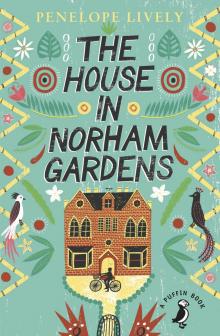 The House in Norham Gardens
The House in Norham Gardens Family Album
Family Album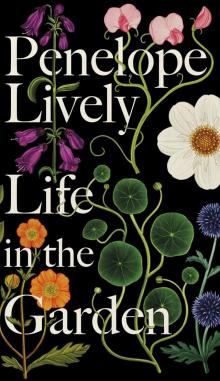 Life in the Garden
Life in the Garden Oleander, Jacaranda: A Childhood Perceived
Oleander, Jacaranda: A Childhood Perceived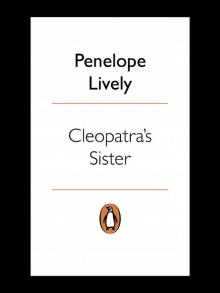 Cleopatra's Sister
Cleopatra's Sister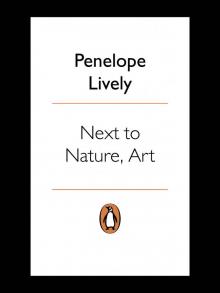 Next to Nature, Art
Next to Nature, Art A Stitch in Time
A Stitch in Time Moon Tiger
Moon Tiger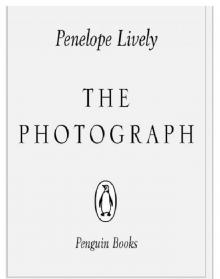 The Photograph
The Photograph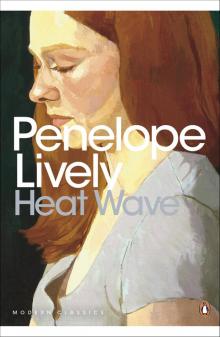 Heat Wave
Heat Wave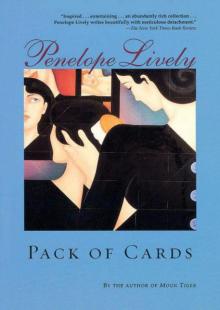 Pack of Cards
Pack of Cards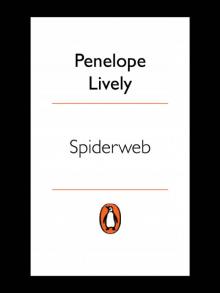 Spiderweb
Spiderweb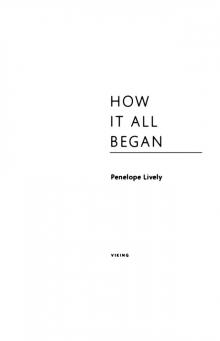 How It All Began
How It All Began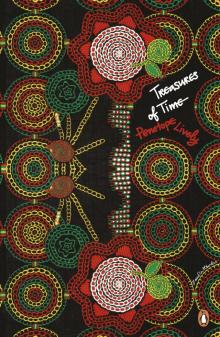 Treasures of Time
Treasures of Time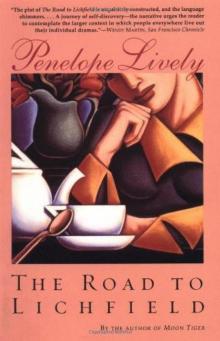 The Road to Lichfield
The Road to Lichfield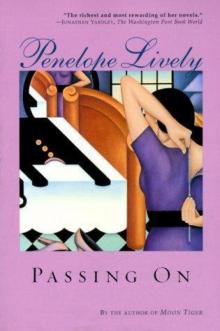 Passing On
Passing On Making It Up
Making It Up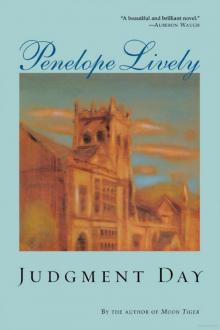 Judgment Day
Judgment Day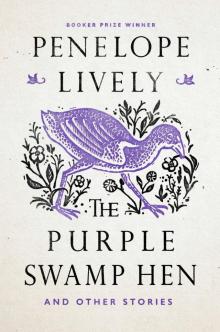 The Purple Swamp Hen and Other Stories
The Purple Swamp Hen and Other Stories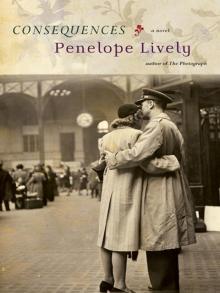 Consequences
Consequences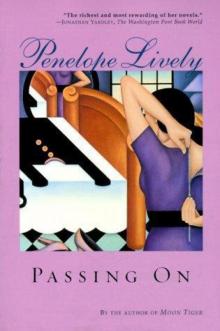 *****Passing On*****
*****Passing On*****